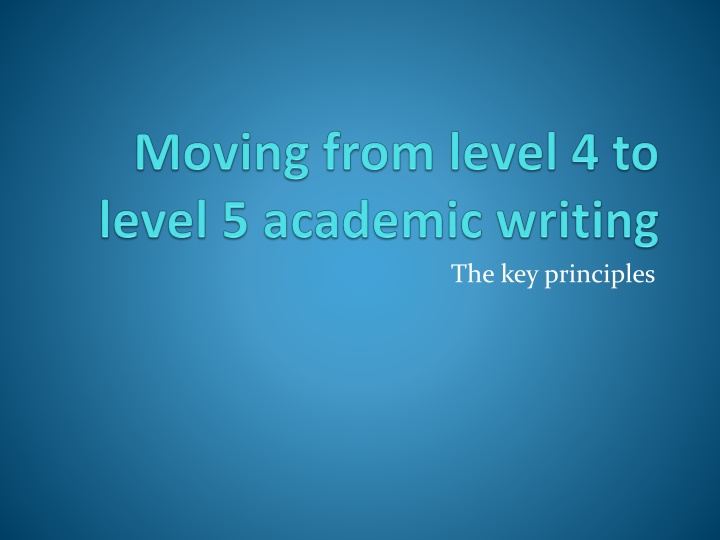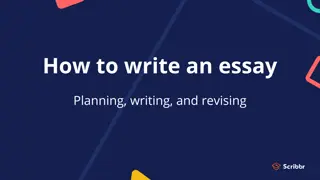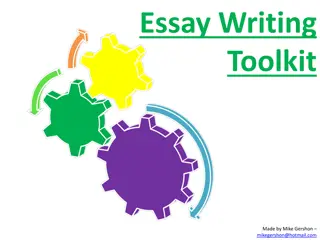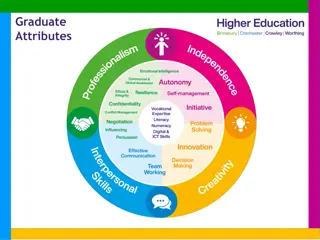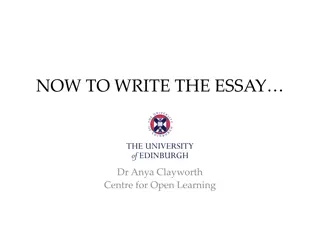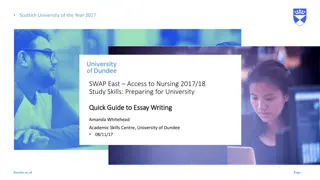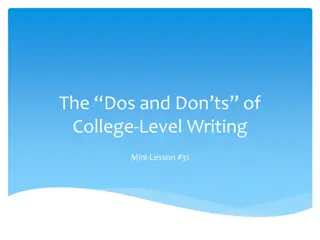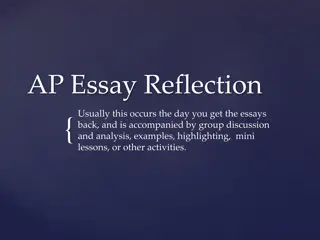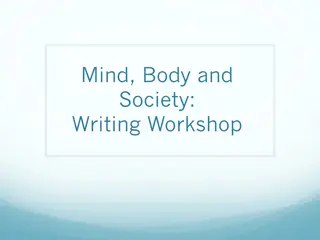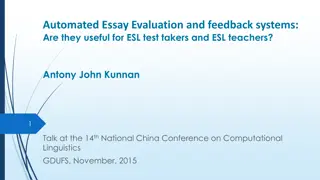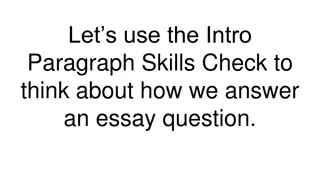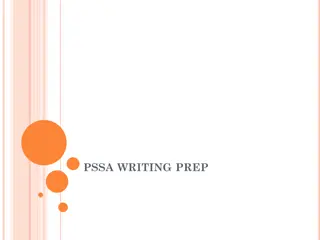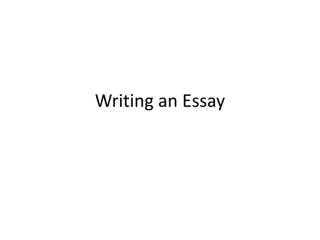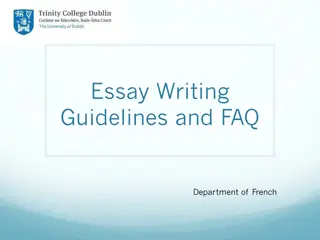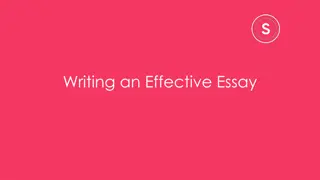Achieving Excellence in Essay Writing at Level 5
Improve your essay writing at Level 5 by focusing on organisation, content application, clarity of expression, analysis, synthesis, and integration of theory and practice. Gain insights on academic structuring, creative use of literature, and critical thinking to excel in your writing.
Download Presentation

Please find below an Image/Link to download the presentation.
The content on the website is provided AS IS for your information and personal use only. It may not be sold, licensed, or shared on other websites without obtaining consent from the author.If you encounter any issues during the download, it is possible that the publisher has removed the file from their server.
You are allowed to download the files provided on this website for personal or commercial use, subject to the condition that they are used lawfully. All files are the property of their respective owners.
The content on the website is provided AS IS for your information and personal use only. It may not be sold, licensed, or shared on other websites without obtaining consent from the author.
E N D
Presentation Transcript
Organisation and Coherence: At Level 4, you would have been learning how to structure your essay properly by writing an appropriate introduction and following with the main body and conclusion. At Level 5, however, the expectations have changed. It is expected that at this level, you already know how to structure an essay, so the marks awarded simply for putting your facts in the right order and ensuring you have an introduction, main body and conclusion are reduced.
Content To get good marks for content at Level 5, you must show an improved ability to apply theory to practice. As you get better at doing this, (as you move from level 4 to level 5) we would expect you to start displaying more originality and creativity in the way you use the literature (you have selected) to try to explain the teaching (you have witnessed), or the teaching and learning issue under discussion.
Clarity of Expression Marks in this section are easy to gain, but also very easy to lose. Any typing errors will cause you to lose marks, even if your English is otherwise good. Careful proof reading, therefore, is essential.
Level of Analysis and Synthesis This ability must show significant improvement at Level 5, compared to Level 4. The best way to think about how to achieve this at Level 5, is to think about creating an academic jigsaw puzzle. Choosing the pieces of your puzzle is part of the analysis process. You will have read the literature and pulled out the pieces of information that you believe you can use to build your essay. This is the first stage in building your academic argument.
The bringing together of pieces of theory and pieces of practice is known as integration. At Level 4, the key requirement is that, in putting the pieces together, you show knowledge and understanding. At Level 5 this changes to being able to begin to comment on the relevance the pieces of theory have (in other words whether they should be applied in practice, or not).
At Level 4, the placing of the theory and practice information together logically is what is mostly expected. At Level 5, you start commenting further, not just explaining what each piece means, but making links with other literature you have read, looking for confirmation in other references, or perhaps finding out where different authors disagree with one another.
In this process of integration, you are choosing where you believe the pieces of your academic jigsaw puzzle fit together. In doing so, you are growing your own version of the facts. This growing is known as synthesis. This is the picture (or argument) you are making with your interpretation of the facts. The next stage is then to evaluate what you have found and make a decision as to what is important.
This evaluation is an important part of the conclusion, where you summariseyour interpretation of the facts, in your own wordsand then decide the best way forward, by highlighting key implications for practice or making recommendations.
Use of literature showing knowledge and understanding By Level 5 you are expected to be more able to identify and utilize a wide range of sources of information, so the expectations concerning the use of literature increase. You should be able to show that you have a sound understanding of the available literature on the subject, by using references to support every piece of theory that you present.
Quality of Referencing Referencing marks are easy to gain by following the rules carefully, but also very easy to lose, through silly avoidable mistakes. Do not make the mistake of leaving the reference list to the last minute.
Reference: Bysshe, J (2006) Rationale for Development of Academic Writing Guidelines Thames Valley University [Online] Available: http://www.google.co.uk/url?sa=t&rct=j&q=&esrc=s&source= web&cd=5&ved=0CEkQFjAE&url=http%3A%2F%2Fwww.wol fson.tvu.ac.uk%2Fschools%2Fnursing%2Fnursing%2520guid elines%2520for%2520academic%2520writing.doc&ei=1Xl7Uv _7LuWM0AXym4GACw&usg=AFQjCNHZ4ERNzSygGLqM7L jXFTAtwLZjxA&bvm=bv.56146854,d.d2k [Access date: 6.11.13]
